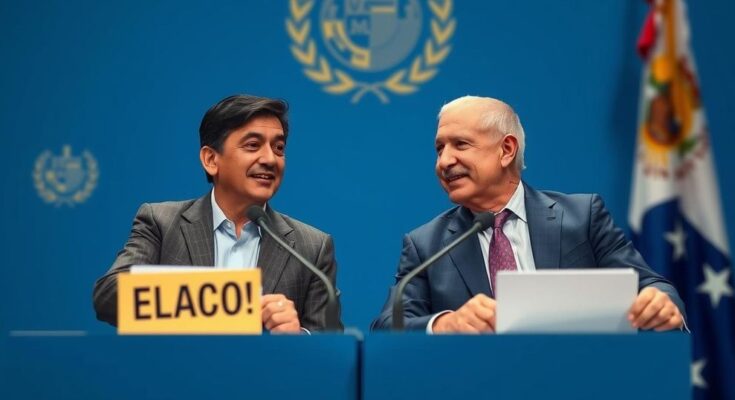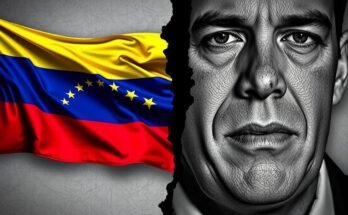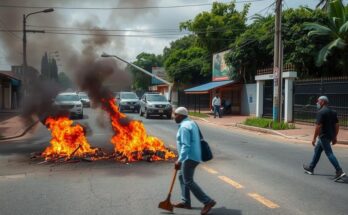Uruguay held a presidential election featuring two moderate candidates amid a backdrop of regional political instability. Voter turnout exceeded 88 percent as citizens expressed satisfaction with the government’s moderate policies, focusing on social security reform and economic stability. The key candidates, Álvaro Delgado and Yamandú Orsi, reflect the country’s tradition of political consensus, further entrenched by public support for democracy.
In the small South American nation of Uruguay, voters participated in a significant election, electing a new president from a pool of two moderates. This electoral event stands in stark contrast to the political turbulence observed in other regions of Latin America, where divisions and democratic regression have become prevalent. Approximately 2.7 million eligible voters cast their votes not only for the presidency but also for parliamentary seats and a crucial referendum aimed at reforming the social security system. With a turnout reported to be over 88 percent, reflective of the nation’s compulsory voting regulations, the election results are anticipated shortly after polls close. The proposed referendum, which seeks to expand the fiscal deficit, has captured considerable media attention, overshadowing other pressing issues like child poverty and education. Despite the competitive nature of the presidential race, both candidates show broad consensus on various policy issues, leading analysts to predict little drastic transformation regardless of the outcome. Juan Cruz Díaz, a political analyst, remarked, “In a way, Uruguay has been boring, but boring in this sense is very good.” This statement encapsulates Uruguay’s reputation as a stable, democratic nation amidst regional upheavals. Voter satisfaction with the current government’s policies remains high, with incumbent President Luis Lacalle Pou holding a 50 percent approval rating. The presidency has largely been free from the toxic campaigning seen in other countries, focusing instead on shared values and mutual respect. The candidates vying for the presidency include Álvaro Delgado, the ruling party’s candidate and a former chief of staff, and Yamandú Orsi, the challenger from the center-left coalition that governed prior to the current administration. Orsi has highlighted the importance of democracy in Uruguay, stating, “Uruguay has had the happiness for 40 uninterrupted years … the happiness that our citizens can elect their leaders.” Meanwhile, former President José Mujica, a significant figure in Uruguayan politics, affirms the importance of supporting democracy, underscoring, “We need to support democracy, not because it is perfect, but because humans have not yet invented anything better.” In terms of public concerns, the campaigns have addressed rising crime rates and economic issues, with differing approaches proposed by the candidates. Overlapping political platforms have, however, left many voters feeling disengaged. A contentious point in the election centered around the social security reform proposal, which, if endorsed, would lower retirement age and increase pension payouts. The candidates have expressed opposition to this referendum—a critical issue that could reshape economic policy in Uruguay.
Uruguay has long been recognized as a stable democracy in South America, characterized by its political moderation and a commitment to civic engagement. This election, which saw high voter turnout, is indicative of the nation’s political health and the electorate’s awareness of important socio-economic issues. The political landscape in Uruguay differs significantly from neighboring countries, which have experienced severe political divisions and unrest. With the current administration enjoying considerable support, the political environment is focused on maintaining stability while addressing pressing societal challenges like poverty and safety.
The election in Uruguay highlights the country’s commitment to democratic principles, with a voter base that embraces moderate candidates amidst a backdrop of political tension in the broader region. The high engagement in the electoral process signifies a collective desire to maintain stability and ensure that governance remains focused on socio-economic enhancement. The outcome of this election, along with the referendum on social security reforms, will contribute to shaping Uruguay’s future trajectory in the realm of democratic governance and economic policy.
Original Source: www.pbs.org




